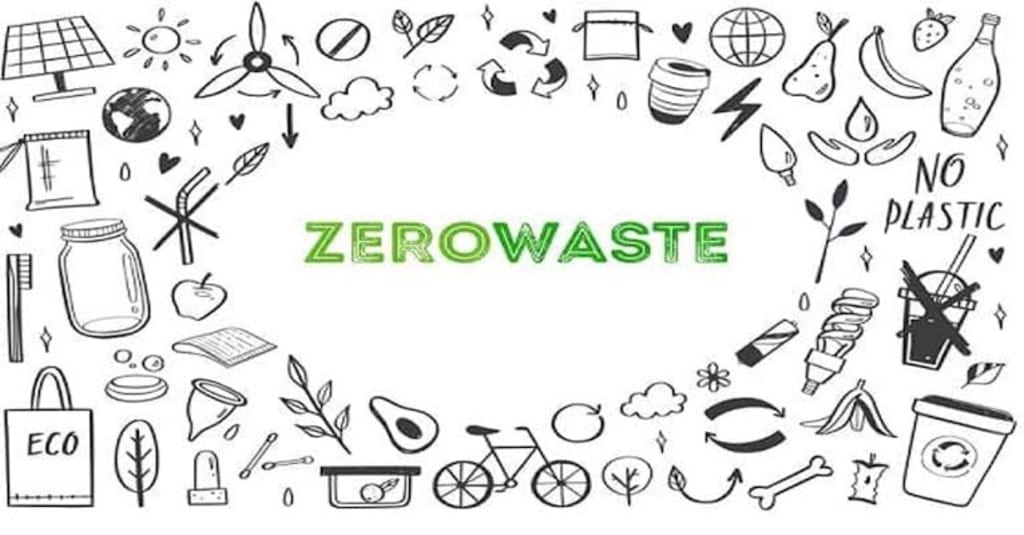The Rise of Zero Waste Living
Practical Tips and Tricks

Introduction:
In recent years, the world has witnessed a remarkable shift towards sustainable living practices, with zero waste living gaining significant attention. As the urgency to combat climate change intensifies, individuals are embracing this lifestyle, striving to minimize waste generation and maximize resource conservation. If you're intrigued by the concept of zero waste living and are eager to make a positive impact on the environment, this article will provide you with practical tips and tricks to get started. Discover how small changes can lead to significant transformations while contributing to a healthier planet.
Embrace the 5 R's (Word Count: 100)
At the core of zero waste living lies the mantra of the 5 R's: Refuse, Reduce, Reuse, Recycle, and Rot. Refusing unnecessary items, reducing consumption, reusing products, recycling waste, and composting organic materials are key principles to follow. By incorporating these principles into your daily life, you can significantly reduce your ecological footprint and inspire others to follow suit.
Embracing Sustainable Shopping Habits
The key to zero waste living begins with mindful shopping. Opt for reusable bags, eco-friendly packaging, and bulk purchases to reduce single-use plastic waste. Viral keywords like "sustainable shopping" and "plastic-free alternatives" are gaining popularity and can help you discover innovative products that align with your zero waste goals.
Reducing Food Waste
Food waste contributes significantly to overall waste generation. Practice meal planning, utilize leftovers creatively, and compost organic waste to minimize your ecological footprint. These actionable steps not only promote zero waste living but also save money and enhance the taste of your culinary creations.
DIY and Upcycling Projects
Unleash your creativity by engaging in do-it-yourself (DIY) projects and upcycling. By repurposing old items or transforming them into something new, you not only reduce waste but also create unique and personalized items for your home. Incorporating viral keywords like "upcycling ideas" and "DIY projects" in your search can lead you to a treasure trove of inspiration.
Conscious Consumerism
Adopting a zero waste lifestyle goes beyond reducing waste at home. Be a conscious consumer by supporting businesses that prioritize sustainability and environmental responsibility. Promote the use of viral keywords such as "ethical brands" and "sustainable fashion" to find products that align with your values.
Eco-Friendly Cleaning and Personal Care
Make the switch to eco-friendly cleaning and personal care products. Look for alternatives that are free from harmful chemicals and packaged in recyclable or compostable materials. Incorporate viral keywords like "natural cleaning products" and "zero waste toiletries" to discover a range of sustainable options.
Begin with a Zero Waste kit:
Creating a zero waste kit is an essential first step towards sustainable living. Include reusable items such as stainless steel water bottles, cloth shopping bags, glass containers, and bamboo cutlery. These simple swaps eliminate the need for single-use items and reduce waste production. Keep your kit readily available, ensuring that you're always prepared to make sustainable choices, whether you're grocery shopping, dining out, or going to work.
Shop Smartly:
Adopting zero waste principles when shopping is crucial. Start by buying in bulk to minimize packaging waste. Seek out stores that offer eco-friendly alternatives, such as refill stations for detergents and personal care products. Choose products with minimal packaging or opt for package-free alternatives. Additionally, consider purchasing second-hand items, supporting local businesses, and embracing a minimalist lifestyle to reduce overall consumption.
Sustainable Meal Planning (Word Count: 150)
Food waste is a significant contributor to environmental degradation. Engage in sustainable meal planning by purchasing locally sourced, seasonal produce, which reduces carbon emissions associated with transportation. Compost food scraps to create nutrient-rich soil for your garden. Avoid single-serving items, cook from scratch, and repurpose leftovers creatively. By adopting these practices, you can minimize food waste and contribute to a greener future.
DIY and Repurposing:
Get creative with do-it-yourself (DIY) projects and repurposing. Upcycle old items into something new and useful, such as turning glass jars into storage containers or transforming worn-out clothing into reusable bags or cleaning rags. DIY projects not only reduce waste but also allow you to unleash your creativity and add a personal touch to your belongings.
Engage in Community Initiatives:
The power of community is undeniable when it comes to sustainability. Join local zero waste groups, participate in community clean-up drives, and attend workshops or seminars to learn from like-minded individuals. By connecting with others who share your passion for zero waste living, you can exchange ideas, share experiences, and collectively drive change within your community.
Conclusion:
Zero waste living is not an all-or-nothing endeavor; it's a continuous journey of progress. By implementing
About the Creator
Evans
Startriti
Enjoyed the story? Support the Creator.
Subscribe for free to receive all their stories in your feed. You could also pledge your support or give them a one-off tip, letting them know you appreciate their work.





Comments
There are no comments for this story
Be the first to respond and start the conversation.